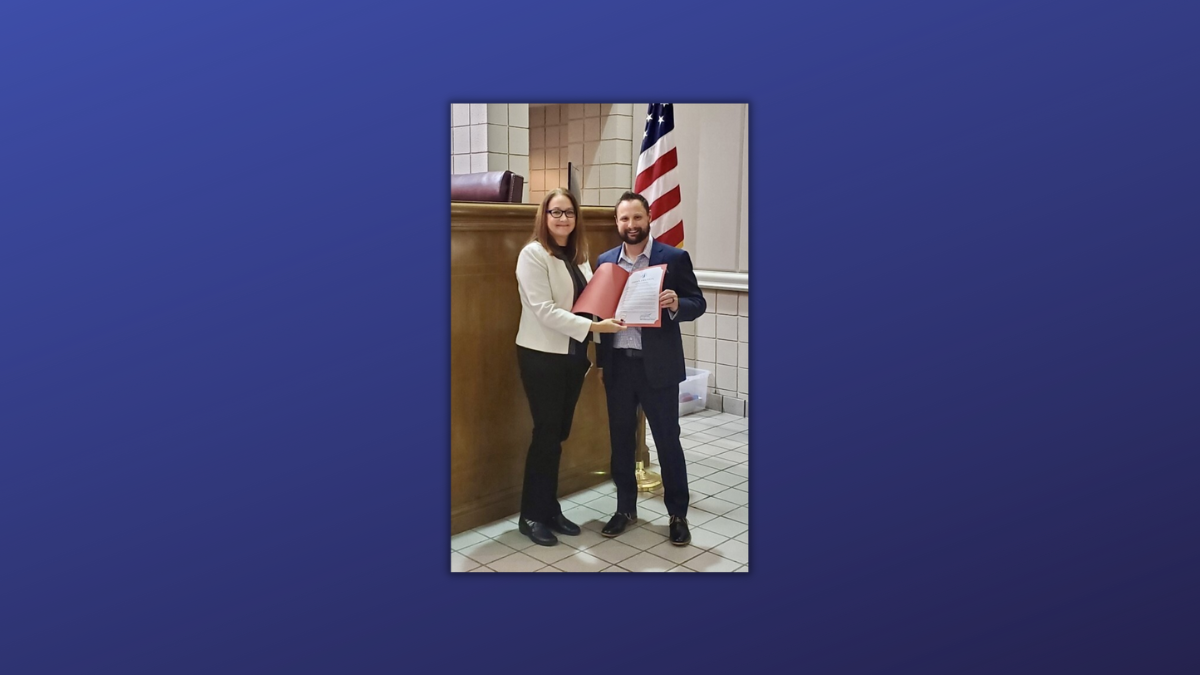Alabama Human Trafficking Task Force will hold annual summit January 26–27

Human trafficking is the second-largest criminal activity in the world and the fastest-growing. Awareness in the United States has increased, but human trafficking continues to go underreported due to its nature of isolation, the misconception of the definition of human trafficking and the lack of awareness of its signs and indicators.
Human trafficking occurs when an adult or child is recruited, harbored, obtained, or exported through force, fraud or coercion for the purposes of sexual exploitation, forced labor, involuntary servitude, debt bondage and other methods of slavery. The U.S. State Department estimates there are some 27.6 million human trafficking victims worldwide at any given time. Human traffickers prey on people of all ages, backgrounds and nationalities, exploiting them for their own profit.
In the U.S., traffickers compel victims to engage in commercial sex and to work in both legal and illicit industries and sectors, including in hospitality, traveling sales crews, agriculture, janitorial services, construction, landscaping, restaurants, factories, care for persons with disabilities, salon services, massage parlors, retail services, fairs and carnivals, peddling and begging, drug smuggling and distribution, religious institutions, child care and domestic work, according to information published by the State Department.
Victims can be of any age, race, ethnicity, sex, gender identity, sexual orientation, nationality, immigration status, cultural background, religion, socio-economic class and education attainment level. Individuals vulnerable to human trafficking include children in the child welfare and juvenile justice systems, including foster care; runaway and homeless youth; unaccompanied foreign national children without lawful immigration status; persons with limited English proficiency; persons with disabilities; ; and victims of intimate partner violence or other forms of domestic violence.
Building awareness
To build awareness, several municipalities in Alabama have declared January 2023 as Human Trafficking Awareness Month. Those cities include Albertville, Ashland, Birmingham, Brent, Brundidge, Center Point, Chelsea, Collinsville, Cullman, Daleville, Dora, Elba, Enterprise, Fairhope, Fort Deposit, Fort Payne, Geraldine, Hamilton, Helena, Holly Pond, Killen, Kimberly, Madison, Magnolia Springs, Montevallo, Montgomery, Mountain Brook, Northport, Phenix City, Ragland, Rainbow City, Satsuma, Semmes, Trussville, Tuscaloosa and Vestavia Hills.
Since 2019, several municipalities across the state have declared themselves Trafficking Free Zones as defined by the U.S. Institute Against Human Trafficking. In order to become a Trafficking Free Zone, cities commit to training their entire staff, law enforcement and first responders in human trafficking awareness; they commit to a zero-tolerance human resources policy regarding soliciting commercial sex, requiring immediate termination; they are asked to educate schools and the community through educational events and awareness and prevention programs.
Alabama Trafficking Free Zones now include the cities of Alexander City, Bessemer, Birmingham, Camp Hill, Center Point, Cullman, Dadeville, Gardendale, Homewood, Hoover, Irondale, Lakeview, Mountain Brook, Northport, Opelika, Oxford, Pinson, Rainbow City, Semmes, South Vinemont, Trussville and Vestavia Hills.
Several organizations and businesses in Alabama have also taken steps to become Trafficking Free Zones, including: BH Photography, the Birmingham City Council, Coastal Alabama Community College, the District Attorney's Office 7th Judicial Circuit of Alabama, Fowler-Davis, LLC, the Jefferson County City Council, the Jefferson County Mayor's Association, Trafficking Hope, The World Games 2022 Birmingham and the UAB School of Medicine.
The ninth annual Alabama Human Trafficking Awareness Day was observed Jan. 11.
Upcoming training
The Alabama Human Trafficking Summit will be held Jan. 26–27 at the Renaissance Hotel Montgomery. To learn more about the Summit, visit this link.
For more information about the Alabama Human Trafficking Task Force or to register for the Alabama Human Trafficking Summit, please visit enditalabama.org. (Information provided by the Alabama Human Trafficking Task Force with additional reporting by The Alabama Baptist)
This “Eyes on Trafficking” story is reprinted from its original online location.
 ABOUT PBJ LEARNING
ABOUT PBJ LEARNING
PBJ Learning is a leading provider of online human trafficking training, focusing on awareness and prevention education. Their interactive Human Trafficking Essentials online course is used worldwide to educate professionals and individuals how to recognize human trafficking and how to respond to potential victims. Learn on any web browser (even your mobile phone) at any time.
More stories like this can be found in your PBJ Learning Knowledge Vault.
EYES ON TRAFFICKING
This “Eyes on Trafficking” story is reprinted from its original online location.
ABOUT PBJ LEARNING
PBJ Learning is a leading provider of online human trafficking training, focusing on awareness and prevention education. Their interactive Human Trafficking Essentials online course is used worldwide to educate professionals and individuals how to recognize human trafficking and how to respond to potential victims. Learn on any web browser (even your mobile phone) at any time.
More stories like this can be found in your PBJ Learning Knowledge Vault.
